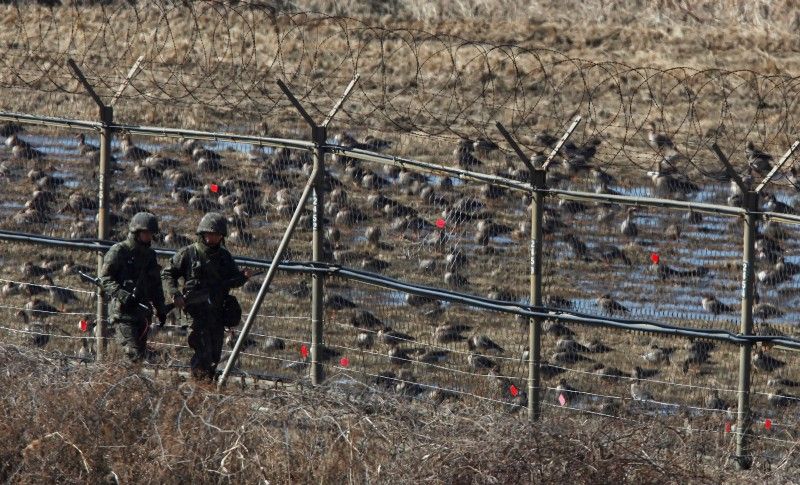We’ve written a number of stories about how environmental changes can shape geopolitics, but here’s a story of the moment in which geopolitics decisively reshape the environment.
The mile-wide ribbon of demilitarized territory (DMZ) that separates North and South Korea meanders along one of the most heavily guarded borders in the world. Bounded by barbed wire and scoured by snipers, it’s no place for humans to tread. As a result, we have learned from Smithsonian magazine, it has become an unlikely sanctuary for dozens of endangered flora and fauna, including two rare species of crane (the red-crowned and white-naped, for the bird nerds among you) often found in classical Asian art. Any rapprochement between North and South that eases border tensions is sure to ruffle some (actual) feathers.☰
More from GZERO Media
Toppling Maduro would be the easy part. On the GZERO World Podcast, Ian Bremmer and former US Ambassador James Story game out what a US intervention in Venezuela might look like—and more importantly, how the US would manage the aftermath.
- YouTube
Ian Bremmer responds to a viral backlash over his weekend photo joking about a “breadline” in New York City. Actually, a line of happy people waiting outside an artisanal bagel shop.
- YouTube
Ian Bremmer breaks down the Bush (HW)‑era precedent and what it tells us about a possible US intervention in Venezuela.
German Chancellor and chairwoman of the Christian Democratic Union (CDU) Angela Merkel addresses a news conference in Berlin, Germany September 19, 2016.
REUTERS/Fabrizio Bensch
Angela Merkel was elected chancellor of Germany on November 22, 2005, becoming the first woman to hold that job. During that time Merkel was arguably the most powerful woman in the world, presiding over one of its largest economies for four terms in the Bundesregierung. Twenty years on, the anniversary is a reminder of how singular her breakthrough remains. It’s still the exception when a woman runs a country.
What We’re Watching: Kyiv gets a nugget US peace plan, Election day in Guinea-Bissau, Two men from Queens meet at the White House
November 21, 2025
Ukrainian President Volodymyr Zelensky meets with US Army Secretary Daniel Driscoll amid Russia's attack on Ukraine, in Kyiv, Ukraine, on November 20, 2025.
Ukrainian Presidential Press Service/Handout via REUTERS
Think you know what's going on around the world? Here's your chance to prove it.
Argentine President Javier Milei speaks during the America Business Forum at the Kaseya Center in Miami, Florida, USA, on November 6, 2025.
REUTERS/Marco Bello
What We’re Watching: US and Russia’s peace framework, West Africa on edge, Iran asks Saudi Arabia to put in a good word with Trump
November 20, 2025
A psychologist comforts a resident in front of an apartment building that was hit yesterday by a Russian missile, amid Russia's attack on Ukraine, in Ternopil, Ukraine, November 20, 2025.
REUTERS/Thomas Peter
US and Russia reportedly draft new Ukraine peace framework
Senior Nazi figures – Hermann Goering (1893-1946), Rudolf Hess (1894-1987), Joachim von Ribentrop (1893-1946), and Wilhelm Keitel (1882-1946) – stand trial in Nuremberg, Germany, 1945-46.
Bridgeman Images via Reuters Connect
© 2025 GZERO Media. All Rights Reserved | A Eurasia Group media company.
